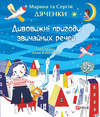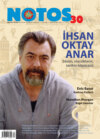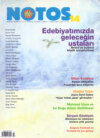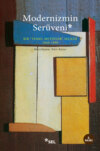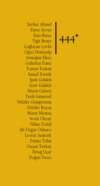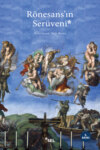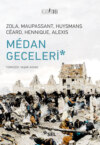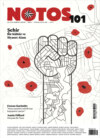Kitabı oku: «Victorian Short Stories: Stories of Courtship», sayfa 5
V
It was three weeks since he had fetched his flock down from the fell.
After dinner he and his mother sat together in the parlour: they had done so every Sunday afternoon, year in and year out, as far back as he could remember.
A row of mahogany chairs, with shiny, horse-hair seats, were ranged round the room. A great collection of agricultural prize-tickets were pinned over the wall; and, on a heavy, highly-polished sideboard stood several silver cups. A heap of gilt-edged shavings filled the unused grate: there were gaudily-tinted roses along the mantelpiece, and, on a small table by the window, beneath a glass-case, a gilt basket filled with imitation flowers. Every object was disposed with a scrupulous precision: the carpet and the red-patterned cloth on the centre table were much faded. The room was spotlessly clean, and wore, in the chilly winter sunlight, a rigid, comfortless air.
Neither spoke, or appeared conscious of the other's presence. Old Mrs. Garstin, wrapped in a woollen shawl, sat knitting: Anthony dozed fitfully on a stiff-backed chair.
Of a sudden, in the distance, a bell started tolling. Anthony rubbed his eyes drowsily, and taking from the table his Sunday hat, strolled out across the dusky fields. Presently, reaching a rude wooden seat, built beside the bridle-path, he sat down and relit his pipe. The air was very still; below him a white filmy mist hung across the valley: the fell-sides, vaguely grouped, resembled hulking masses of sombre shadow; and, as he looked back, three squares of glimmering gold revealed the lighted windows of the square-towered church.
He sat smoking; pondering, with placid and reverential contemplation, on the Mighty Maker of the world—a world majestically and inevitably ordered; a world where, he argued, each object—each fissure in the fells, the winding course of each tumbling stream—possesses its mysterious purport, its inevitable signification….
At the end of the field two rams were fighting; retreating, then running together, and, leaping from the ground, butting head to head and horn to horn. Anthony watched them absently, pursuing his rude meditations.
… And the succession of bad seasons, the slow ruination of the farmers throughout the country, were but punishment meted out for the accumulated wickedness of the world. In the olden time God rained plagues upon the land: nowadays, in His wrath, He spoiled the produce of the earth, which, with His own hands, He had fashioned and bestowed upon men.
He rose and continued his walk along the bridle-path. A multitude of rabbits scuttled up the hill at his approach; and a great cloud of plovers, rising from the rushes, circled overhead, filling the air with a profusion of their querulous cries. All at once he heard a rattling of stones, and perceived a number of small pieces of shingle bounding in front of him down the grassy slope.
A woman's figure was moving among the rocks above him. The next moment, by the trimming of crimson velvet on her hat, he had recognized her. He mounted the slope with springing strides, wondering the while how it was she came to be there, that she was not in church playing the organ at afternoon service.
Before she was aware of his approach, he was beside her.
'I thought ye'd be in church—' he began.
She started: then, gradually regaining her composure, answered, weakly smiling:
'Mr. Jenkinson, the new schoolmaster, wanted to try the organ.'
He came towards her impulsively: she saw the odd flickers in his eyes as she stepped back in dismay.
'Nay, but I will na harm ye,' he said. 'Only I reckon what 'tis a special turn o' Providence, meetin' wi' ye oop here. I reckon what ye'll hev t' give me a square answer noo. Ye canna dilly-dally everlastingly.'
He spoke almost brutally; and she stood, white and gasping, staring at him with large, frightened eyes. The sheep-walk was but a tiny threadlike track: the slope of the shingle on either side was very steep: below them lay the valley; distant, lifeless, all blurred by the evening dusk. She looked about her helplessly for a means of escape.
'Miss Rosa,' he continued, in a husky voice, 'can ye na coom t' think on me? Think ye, I've bin waitin' nigh upon two year for ye. I've watched ye tak oop, first wi' this young fellar, and then wi' that, till soomtimes my heart's fit t' burst. Many a day, oop on t' fell-top, t' thought o' ye's nigh driven me daft, and I've left my shepherdin' jest t' set on a cairn in t' mist, picturin' an' broodin' on yer face. Many an evenin' I've started oop t' vicarage, wi' t' resolution t' speak right oot t' ye; but when it coomed t' point, a sort o' timidity seemed t' hould me back, I was that feared t' displease ye. I knaw I'm na scholar, an' mabbe ye think I'm rough-mannered. I knaw I've spoken sharply to ye once or twice lately. But it's jest because I'm that mad wi' love for ye: I jest canna help myself soomtimes—'
He waited, peering into her face. She could see the beads of sweat above his bristling eyebrows: the damp had settled on his sandy beard: his horny fingers were twitching at the buttons of his black Sunday coat.
She struggled to summon a smile; but her under-lip quivered, and her large dark eyes filled slowly with tears.
And he went on:
'Ye've coom t' mean jest everything to me. Ef ye will na hev me, I care for nought else. I canna speak t' ye in phrases: I'm jest a plain, unscholarly man: I canna wheedle ye, wi' cunnin' after t' fashion o' toon folks. But I can love ye wi' all my might, an' watch over ye, and work for ye better than any one o' em—'
She was crying to herself, silently, while he spoke. He noticed nothing, however: the twilight hid her face from him.
'There's nought against me,' he persisted. 'I'm as good a man as any one on 'em. Ay, as good a man as any one on 'em,' he repeated defiantly, raising his voice.
'It's impossible, Mr. Garstin, it's impossible. Ye've been very kind to me—' she added, in a choking voice.
'Wa dang it, I didna mean t' mak ye cry, lass,' he exclaimed, with a softening of his tone. 'There's nought for ye t' cry ower.'
She sank on to the stones, passionately sobbing in hysterical and defenceless despair. Anthony stood a moment, gazing at her in clumsy perplexity: then, coming close to her, put his hand on her shoulder, and said gently:
'Coom, lass, what's trouble? Ye can trust me.'
She shook her head faintly.
'Ay, but ye can though,' he asserted, firmly. 'Come, what is't?'
Heedless of him, she continued to rock herself to and fro, crooning in her distress:
'Oh! I wish I were dead!… I wish I could die!'
–'Wish ye could die?' he repeated. 'Why, whatever can't be that's troublin' ye like this? There, there, lassie, give ower: it 'ull all coom right, whatever it be—'
'No, no,' she wailed. 'I wish I could die!… I wish I could die!'
Lights were twinkling in the village below; and across the valley darkness was draping the hills. The girl lifted her face from her hands, and looked up at him with a scared, bewildered expression.
'I must go home: I must be getting home,' she muttered.
'Nay, but there's sommut mighty amiss wi' ye.'
'No, it's nothing… I don't know—I'm not well… I mean it's nothing… it'll pass over… you mustn't think anything of it.'
'Nay, but I canna stand by an see ye in sich trouble.'
'It's nothing, Mr. Garstin, indeed it's nothing,' she repeated.
'Ay, but I canna credit that,' he objected stubbornly.
She sent him a shifting, hunted glance.
'Let me get home… you must let me get home.'
She made a tremulous, pitiful attempt at firmness. Eyeing her keenly, he barred her path: she flushed scarlet, and looked hastily away across the valley.
'If ye'll tell me yer distress, mabbe I can help ye.'
'No, no, it's nothing… it's nothing.'
'If ye'll tell me yer distress, mabbe I can help ye,' he repeated, with a solemn, deliberate sternness. She shivered, and looked away again, vaguely, across the valley.
'You can do nothing: there's nought to be done,' she murmured drearily.
'There's a man in this business,' he declared.
'Let me go! Let me go!' she pleaded desperately.
'Who is't that's bin puttin' ye into this distress?' His voice sounded loud and harsh.
'No one, no one. I canna tell ye, Mr. Garstin…. It's no one,' she protested weakly. The white, twisted look on his face frightened her.
'My God!' he burst out, gripping her wrist, 'an' a proper soft fool ye've made o' me. Who is't, I tell ye? Who's t' man?'
'Ye're hurtin' me. Let me go. I canna tell ye.'
'And ye're fond o' him?'
'No, no. He's a wicked, sinful man. I pray God I may never set eyes on him again. I told him so.'
'But ef he's got ye into trouble, he'll hev t' marry ye,' he persisted with a brutal bitterness.
'I will not. I hate him!' she cried fiercely.
'But is he willin' t' marry ye?'
'I don't know … I don't care … he said so before he went away … But I'd kill myself sooner than live with him.'
He let her hands fall and stepped back from her. She could only see his figure, like a sombre cloud, standing before her. The whole fell-side seemed still and dark and lonely. Presently she heard his voice again:
'I reckon what there's one road oot o' yer distress.'
She shook her head drearily.
'There's none. I'm a lost woman.'
'An' ef ye took me instead?' he said eagerly.
'I—I don't understand—'
'Ef ye married me instead of Luke Stock?'
'But that's impossible—the—the—'
'Ay, t' child. I know. But I'll tak t' child as mine.'
She remained silent. After a moment he heard her voice answer in a queer, distant tone:
'You mean that—that ye're ready to marry me, and adopt the child?'
'I do,' he answered doggedly.
'But people—your mother—?'
'Folks 'ull jest know nought about it. It's none o' their business. T' child 'ull pass as mine. Ye'll accept that?'
'Yes,' she answered, in a low, rapid voice.
'Ye'll consent t' hev me, ef I git ye oot o' yer trouble?'
'Yes,' she repeated, in the same tone.
She heard him draw a long breath.
'I said 't was a turn o' Providence, meetin' wi' ye oop here,' he exclaimed, with half-suppressed exultation.
Her teeth began to chatter a little: she felt that he was peering at her, curiously, through the darkness.
'An' noo,' he continued briskly, 'ye'd best be gettin' home. Give me ye're hand, an' I'll stiddy ye ower t' stones.'
He helped her down the bank of shingle, exclaiming: 'By goom, ye're stony cauld.' Once or twice she slipped: he supported her, roughly gripping her knuckles. The stones rolled down the steps, noisily, disappearing into the night.
Presently they struck the turf bridle-path, and, as they descended silently towards the lights of the village, he said gravely:
'I always reckoned what my day 'ud coom.'
She made no reply; and he added grimly:
'There'll be terrible work wi' mother over this.'
He accompanied her down the narrow lane that led past her uncle's house. When the lighted windows came in sight he halted.
'Good night, lassie,' he said kindly. 'Do ye give ower distressin' yeself.'
'Good night, Mr. Garstin,' she answered, in the same low, rapid voice in which she had given him her answer up on the fell.
'We're man an' wife plighted now, are we not?' he blurted timidly.
She held her face to his, and he kissed her on the cheek, clumsily.
VI
The next morning the frost had set in. The sky was still clear and glittering: the whitened fields sparkled in the chilly sunlight: here and there, on high, distant peaks, gleamed dainty caps of snow. All the week Anthony was to be busy at the fell-foot, wall-building against the coming of the winter storms: the work was heavy, for he was single-handed, and the stone had to be fetched from off the fell-side. Two or three times a day he led his rickety, lumbering cart along the lane that passed the vicarage gate, pausing on each journey to glance furtively up at the windows. But he saw no sign of Rosa Blencarn; and, indeed, he felt no longing to see her: he was grimly exultant over the remembrance of his wooing of her, and over the knowledge that she was his. There glowed within him a stolid pride in himself: he thought of the others who had courted her, and the means by which he had won her seemed to him a fine stroke of cleverness.
And so he refrained from any mention of the matter; relishing, as he worked, all alone, the days through, the consciousness of his secret triumph, and anticipating, with inward chucklings, the discomforted cackle of his mother's female friends. He foresaw without misgiving, her bitter opposition: he felt himself strong; and his heart warmed towards the girl. And when, at intervals, the brusque realization that, after all, he was to possess her swept over him, he gripped the stones, and swung them almost fiercely into their places.
All around him the white, empty fields seemed slumbering breathlessly. The stillness stiffened the leafless trees. The frosty air flicked his blood: singing vigorously to himself he worked with a stubborn, unflagging resolution, methodically postponing, till the length of the wall should be completed, the announcement of his betrothal.
After his reticent, solitary fashion, he was very happy, reviewing his future prospects, with a plain and steady assurance, and, as the week-end approached, coming to ignore the irregularity of the whole business: almost to assume, in the exaltation of his pride, that he had won her honestly; and to discard, stolidly, all thought of Luke Stock, of his relations with her, of the coming child that was to pass for his own.
And there were moments too, when, as he sauntered homewards through the dusk at the end of his day's work, his heart grew full to overflowing of a rugged, superstitious gratitude towards God in Heaven who had granted his desires.
About three o'clock on the Saturday afternoon he finished the length of wall. He went home, washed, shaved, put on his Sunday coat; and, avoiding the kitchen, where his mother sat knitting by the fireside, strode up to the vicarage.
It was Rosa who opened the door to him. On recognizing him she started, and he followed her into the dining-room. He seated himself, and began, brusquely:
'I've coom, Miss Rosa, t' speak t' Mr. Blencarn.'
Then added, eyeing her closely:
'Ye're lookin' sick, lass.'
Her faint smile accentuated the worn, white look on her face.
'I reckon ye've been frettin' yeself,' he continued gently, 'leein' awake o' nights, hev'n't yee, noo?'
She smiled vaguely.
'Well, but ye see I've coom t' settle t' whole business for ye. Ye thought mabbe that I was na a man o' my word.'
'No, no, not that,' she protested, 'but—but—'
'But what then?'
'Ye must not do it, Mr. Garstin … I must just bear my own trouble the best I can—' she broke out.
'D'ye fancy I'm takin' ye oot of charity? Ye little reckon the sort o' stuff my love for ye's made of. Nay, Miss Rosa, but ye canna draw back noo.'
'But ye cannot do it, Mr. Garstin. Ye know your mother will na have me at Hootsey…. I could na live there with your mother…. I'd sooner bear my trouble alone, as best I can…. She's that stern is Mrs. Garstin. I couldn't look her in the face…. I can go away somewhere…. I could keep it all from uncle.'
Her colour came and went: she stood before him, looking away from him, dully, out of the window.
'I intend ye t' coom t' Hootsey. I'm na lad: I reckon I can choose my own wife. Mother'll hev ye at t' farm, right enough: ye need na distress yeself on that point—'
'Nay, Mr. Garstin, but indeed she will not, never… I know she will not… She always set herself against me, right from the first.'
'Ay, but that was different. T' case is all changed noo,' he objected doggedly.
'She'll support the sight of me all the less,' the girl faltered.
'Mother'll hev ye at Hootsey—receive ye willin' of her own free wish—of her own free wish, d'ye hear? I'll answer for that.'
He struck the table with his fist heavily. His tone of determination awed her: she glanced at him hurriedly, struggling with her irresolution.
'I knaw hoo t' manage mother. An' now,' he concluded, changing his tone, 'is yer uncle about t' place?'
'He's up the paddock, I think,' she answered.
'Well, I'll jest step oop and hev a word wi' him.'
'Ye're … ye will na tell him.'
'Tut, tut, na harrowin' tales, ye need na fear, lass. I reckon ef I can tackle mother, I can accommodate myself t' parson Blencarn.'
He rose, and coming close to her, scanned her face.
'Ye must git t' roses back t' yer cheeks,' he exclaimed, with a short laugh, 'I canna be takin' a ghost t' church.'
She smiled tremulously, and he continued, laying one hand affectionately on her shoulder:
'Nay, but I was but jestin'. Roses or na roses, ye'll be t' bonniest bride in all Coomberland. I'll meet ye in Hullam lane, after church time, tomorrow,' he added, moving towards the door.
After he had gone, she hurried to the backdoor furtively. His retreating figure was already mounting the grey upland field. Presently, beyond him, she perceived her uncle, emerging through the paddock gate. She ran across the poultry yard, and mounting a tub, stood watching the two figures as they moved towards one another along the brow, Anthony vigorously trudging, with his hands thrust deep in his pockets; her uncle, his wideawake tilted over his nose, hobbling, and leaning stiffly on his pair of sticks. They met; she saw Anthony take her uncle's arm: the two, turning together, strolled away towards the fell.
She went back into the house. Anthony's dog came towards her, slinking along the passage. She caught the animal's head in her hands, and bent over it caressingly, in an impulsive outburst of almost hysterical affection.
VII
The two men returned towards the vicarage. At the paddock gate they halted, and the old man concluded:
'I could not have wished a better man for her, Anthony. Mabbe the Lord'll not be minded to spare me much longer. After I'm gone Rosa'll hev all I possess. She was my poor brother Isaac's only child. After her mother was taken, he, poor fellow, went altogether to the bad, and until she came here she mostly lived among strangers. It's been a wretched sort of childhood for her—a wretched sort of childhood. Ye'll take care of her, Anthony, will ye not? … Nay, but I could not hev wished for a better man for her, and there's my hand on 't.'
'Thank ee, Mr. Blencarn, thank ee,' Anthony answered huskily, gripping the old man's hand.
And he started off down the lane homewards.
His heart was full of a strange, rugged exaltation. He felt with a swelling pride that God had entrusted to him this great charge—to tend her; to make up to her, tenfold, for all that loving care, which, in her childhood, she had never known. And together with a stubborn confidence in himself, there welled up within him a great pity for her—a tender pity, that, chastening with his passion, made her seem to him, as he brooded over that lonely childhood of hers, the more distinctly beautiful, the more profoundly precious. He pictured to himself, tremulously, almost incredulously, their married life—in the winter, his return home at nightfall to find her awaiting him with a glad, trustful smile; their evenings, passed together, sitting in silent happiness over the smouldering logs; or, in summer-time, the midday rest in the hay-fields when, wearing perhaps a large-brimmed hat fastened with a red ribbon, beneath her chin, he would catch sight of her, carrying his dinner, coming across the upland.
She had not been brought up to be a farmer's wife: she was but a child still, as the old parson had said. She should not have to work as other men's wives worked: she should dress like a lady, and on Sundays, in church, wear fine bonnets, and remain, as she had always been, the belle of all the parish.
And, meanwhile, he would farm as he had never farmed before, watching his opportunities, driving cunning bargains, spending nothing on himself, hoarding every penny that she might have what she wanted…. And, as he strode through the village, he seemed to foresee a general brightening of prospects, a sobering of the fever of speculation in sheep, a cessation of the insensate glutting, year after year, of the great winter marts throughout the North, a slackening of the foreign competition followed by a steady revival of the price of fatted stocks—a period of prosperity in store for the farmer at last…. And the future years appeared to open out before him, spread like a distant, glittering plain, across which, he and she, hand in hand, were called to travel together….
And then, suddenly, as his iron-bound boots clattered over the cobbled yard, he remembered, with brutal determination, his mother, and the stormy struggle that awaited him.
He waited till supper was over, till his mother had moved from the table to her place by the chimney corner. For several minutes he remained debating with himself the best method of breaking the news to her. Of a sudden he glanced up at her: her knitting had slipped on to her lap: she was sitting, bunched of a heap in her chair, nodding with sleep. By the flickering light of the wood fire, she looked worn and broken: he felt a twinge of clumsy compunction. And then he remembered the piteous, hunted look in the girl's eyes, and the old man's words when they had parted at the paddock gate, and he blurted out:
'I doot but what I'll hev t' marry Rosa Blencarn after all.'
She started, and blinking her eyes, said:
'I was jest takin' a wink o' sleep. What was 't ye were saying, Tony?'
He hesitated a moment, puckering his forehead into coarse rugged lines, and fidgeting noisily with his tea-cup. Presently he repeated:
'I doot but what I'll hev t' marry Rosa Blencarn after all.'
She rose stiffly, and stepping down from the hearth, came towards him.
'Mabbe I did na hear ye aright, Tony.' She spoke hurriedly, and though she was quite close to him, steadying herself with one hand clutching the back of his chair, her voice sounded weak, distant almost.
'Look oop at me. Look oop into my face,' she commanded fiercely.
He obeyed sullenly.
'Noo oot wi 't. What's yer meanin', Tony?'
'I mean what I say,' he retorted doggedly, averting his gaze.
'What d'ye mean by sayin' that ye've got t' marry her?'
'I tell yer I mean what I say,' he repeated dully.
'Ye mean ye've bin an' put t' girl in trouble?'
He said nothing; but sat staring stupidly at the floor.
'Look oop at me, and answer,' she commanded, gripping his shoulder and shaking him.
He raised his face slowly, and met her glance.
'Ay, that's aboot it,' he answered.
'This'll na be truth. It'll be jest a piece o' wanton trickery!' she cried.
'Nay, but't is truth,' he answered deliberately.
'Ye will na swear t' it?' she persisted.
'I see na necessity for swearin'.'
'Then ye canna swear t' it,' she burst out triumphantly.
He paused an instant; then said quietly:
'Ay, but I'll swear t' it easy enough. Fetch t' Book.'
She lifted the heavy, tattered Bible from the chimney-piece, and placed it before him on the table. He laid his lumpish fist on it.
'Say,' she continued with a tense tremulousness, 'say, I swear t' ye, mother, that 't is t' truth, t' whole truth, and noat but t' truth, s'help me God.'
'I swear t' ye, mother, it's truth, t' whole truth, and nothin' but t' truth, s'help me God,' he repeated after her.
'Kiss t' Book,' she ordered.
He lifted the Bible to his lips. As he replaced it on the table, he burst out into a short laugh:
'Be ye satisfied noo?'
She went back to the chimney corner without a word. The logs on the hearth hissed and crackled. Outside, amid the blackness the wind was rising, hooting through the firs, and past the windows.
After a long while he roused himself, and drawing his pipe from his pocket almost steadily, proceeded leisurely to pare in the palm of his hand a lump of black tobacco.
'We'll be asked in church Sunday,' he remarked bluntly.
She made no answer.
He looked across at her.
Her mouth was drawn tight at the corners: her face wore a queer, rigid aspect. She looked, he thought, like a figure of stone.
'Ye're not feeling poorly, are ye, mother?' he asked.
She shook her head grimly: then, hobbling out into the room, began to speak in a shrill, tuneless voice.
'Ye talked at one time o' takin' a farm over Scarsdale way. But ye'd best stop here. I'll no hinder ye. Ye can have t' large bedroom in t' front, and I'll move ower to what used to be my brother Jake's room. Ye knaw I've never had no opinion of t' girl, but I'll do what's right by her, ef I break my sperrit in t' doin' on't. I'll mak' t' girl welcome here: I'll stand by her proper-like: mebbe I'll finish by findin' soom good in her. But from this day forward, Tony, ye're na son o' mine. Ye've dishonoured yeself: ye've laid a trap for me—ay, laid a trap, that's t' word. Ye've brought shame and bitterness on yer ould mother in her ould age. Ye've made me despise t' varra sect o' ye. Ye can stop on here, but ye shall niver touch a penny of my money; every shillin' of 't shall go t' yer child, or to your child's children. Ay,' she went on, raising her voice, 'ay, ye've got yer way at last, and mebbe ye reckon ye've chosen a mighty smart way. But time 'ull coom when ye'll regret this day, when ye eat oot yer repentance in doost an' ashes. Ay, Lord 'ull punish ye, Tony, chastize ye properly. Ye'll learn that marriage begun in sin can end in nought but sin. Ay,' she concluded, as she reached the door, raising her skinny hand prophetically, 'ay, after I'm deed and gone, ye mind ye o' t' words o' t' apostle—"For them that hev sinned without t' law, shall also perish without t' law."'
And she slammed the door behind her.










